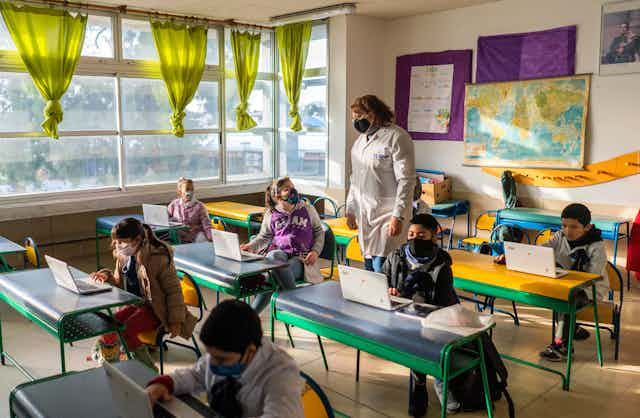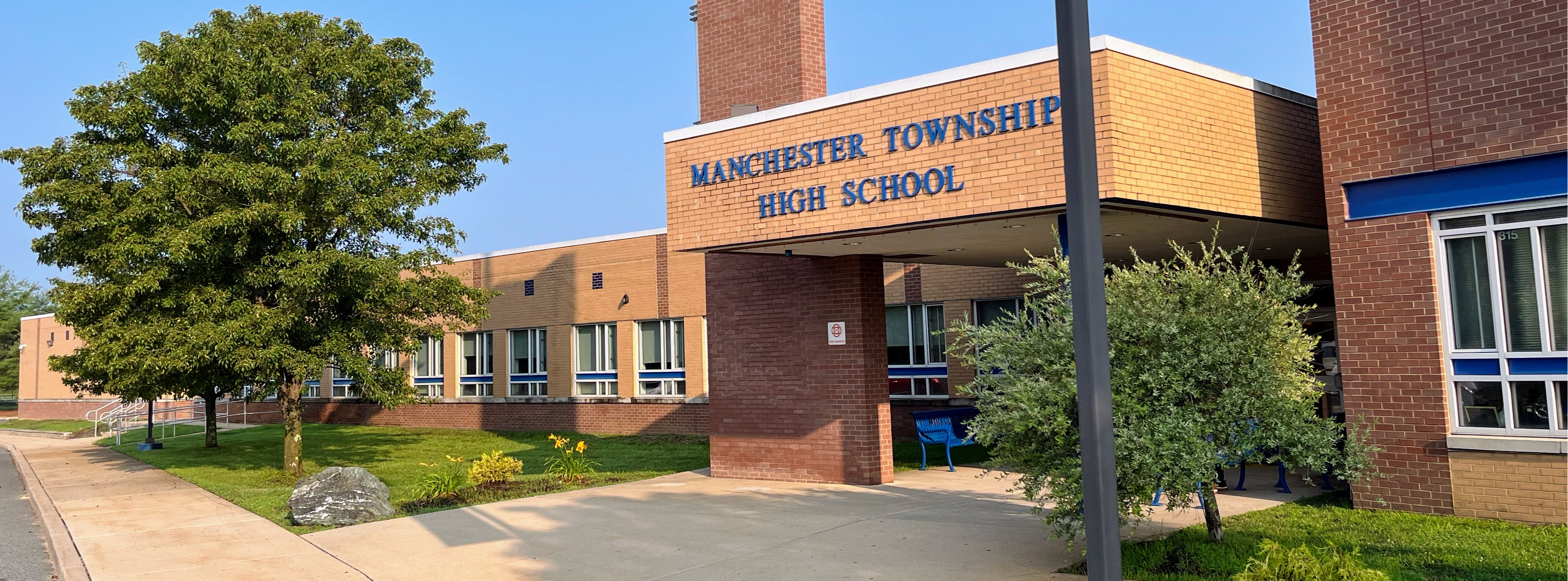Explore the Challenges Facing Our Area: Save Temecula Schools
Explore the Challenges Facing Our Area: Save Temecula Schools
Blog Article
Just How Schools Play a Critical Duty in Shaping Future Leaders and Innovators
Institutions contribute fit future leaders and innovators with the farming of crucial reasoning, creative thinking, and cooperation. By incorporating project-based understanding and interdisciplinary research studies, schools challenge students to examine and synthesize complicated details. Teachers act as advisors, guiding students and nurturing their possibility, while extracurricular activities better develop leadership abilities and durability. This vibrant setting not only concentrates on private toughness however likewise highlights the value of teamwork, important for navigating tomorrow's challenges. Just how precisely do these aspects interaction to develop a robust structure for future success?
Promoting Critical Assuming
In today's rapidly advancing world, promoting vital assuming within universities has actually come to be extremely important. As society grapples with increasingly complicated global obstacles, the capacity to evaluate, assess, and manufacture information is important. Schools play a critical function in developing these skills, preparing pupils to navigate and attend to multifaceted issues with informed, reasoned decisions.
To cultivate essential reasoning, instructors use different instructional methods that motivate energetic discovering and intellectual involvement. Classroom conversations, problem-based understanding, and Socratic questioning contribute in promoting reflective and analytical mind. By challenging trainees to interrogate presumptions and consider numerous point of views, these techniques ensure a much deeper understanding of subject beyond memorizing memorization.
Furthermore, integrating critical assuming across the educational program strengthens its relevance and applicability in diverse contexts. Topics such as maths, scientific research, background, and literature each offer one-of-a-kind chances to establish pupils' important faculties. For instance, analyzing historical occasions needs reviewing resources and comprehending context, while scientific query demands rigorous theory screening and evidence-based reasoning.
Ultimately, instilling critical believing skills in pupils equips them with the cognitive tools needed for long-lasting discovering and versatility. It is through this fundamental proficiency that future leaders will have the ability to introduce, address issues, and add meaningfully to society.
Urging Creative Thinking
Accepting creativity within educational frameworks galvanizes trainees to think beyond conventional borders and explore innovative solutions. By integrating imaginative undertakings and creative reasoning workouts right into the educational program, schools cultivate an environment where originality and creative thought are valued. This technique not just enhances the academic experience however also outfits students with the capacity to tackle real-world difficulties in unique methods.
Educational organizations can cultivate imagination with diverse ways such as project-based knowing, interdisciplinary researches, and the unification of arts and technology. Project-based knowing, for instance, encourages trainees to apply their understanding in practical, typically collective, jobs that demand innovative analytic skills. Interdisciplinary researches permit trainees to attract connections between different topics, thereby broadening their perspectives and enhancing their innovative capabilities.
Additionally, providing pupils with chances to involve with arising modern technologies, such as coding and electronic style, better nurtures their creative capacity. These activities trigger trainees to experiment, fall short, and iterate, which are crucial elements of the innovative process (Save Temecula Schools). By keeping a helpful setting where testing is encouraged, schools can make sure that trainees create the confidence to go after cutting-edge ideas
Basically, supporting creative thinking in educational settings is indispensable for forming future leaders and trendsetters efficient in dealing with intricate international problems with ingenuity.
Supporting Partnership

Carrying out group-based discovering modules and cooperative jobs allows students to experience the characteristics of team effort firsthand. This not only prepares them for the joint nature of modern-day work environments yet likewise supports management high qualities as they typically need to tackle duties such as job managers or team coordinators. Additionally, partnership in the classroom can break down social obstacles and promote inclusivity, making certain that each pupil really feels valued and listened to.
Moreover, incorporating modern technology can additionally sustain collaborative initiatives. Devices like common electronic offices and interactive systems enable pupils to work together successfully, even outside the class. As students create these collaborative skills, they are much better outfitted to deal with complicated challenges and innovate, laying the foundation for their future roles as innovators and leaders.
Function of Educators as Mentors

Mentorship entails individualized attention, where instructors identify and support private staminas and address weaknesses. Save Temecula Schools. Via one-on-one communications, teachers can tailor their suggestions and assistance to meet each student's one-of-a-kind requirements, fostering a feeling of confidence and resilience. This customized strategy cultivates a growth attitude, encouraging trainees to view failings as opportunities for discovering and growth
Additionally, educators work as good example, showing the worths of integrity, perseverance, and compassion. Their mindsets and actions give a blueprint for students to mimic, instilling a feeling of honest duty and social recognition. By developing a comprehensive and supportive class atmosphere, educators allow go to this site pupils to develop social abilities that are essential for effective leadership.
Fundamentally, the mentorship provided by educators lays a fundamental framework for the advancement of future leaders, outfitting them with the expertise, skills, and values needed to stand out in an ever-evolving globe.
Influence of Extracurricular Tasks
When integrated effectively into the educational structure, extracurricular activities considerably improve pupil growth and management possibility. These tasks offer students with possibilities to explore passions past the traditional curriculum, promoting a versatile capability. Clubs, sports groups, and arts programs grow important qualities such as teamwork, time administration, and strength. Engagement in these tasks frequently requires pupils to tackle obligations, thereby nurturing their leadership abilities.
Furthermore, extracurricular participation urges creative thinking and development. Pupils took part in dispute, drama, or music clubs find out to think seriously and technique problems from varied perspectives. These experiences infuse confidence, enabling students to articulate their ideas and take initiative in various settings. By teaming up with peers from different histories, pupils also develop empathy and communication abilities, essential attributes for future leaders.
After-school activities additionally play a critical duty in scholastic performance. Study suggests that pupils entailed in such programs have a tendency to have greater grades and much better presence documents. These activities offer a healthy and balanced outlet for anxiety, adding to overall wellness. Therefore, colleges that focus on a well balanced approach to education and learning, integrating durable extracurricular programs, are more likely to create pioneers and leaders equipped to satisfy the challenges of the future.

Verdict
In verdict, institutions significantly shape future leaders and trendsetters by nurturing critical reasoning, creativity, and cooperation amongst pupils. By cultivating an encouraging atmosphere that values specific toughness and team effort, colleges gear up pupils with the needed skills to browse future obstacles and drive development.
As pupils create these collective skills, they are better equipped to take on complex difficulties and innovate, laying the foundation for their future duties as leaders and innovators.
By cultivating crucial reasoning and problem-solving abilities, instructors help trainees Recommended Site navigate intricate challenges, preparing them for management functions in different areas.
By teaming up with peers from different backgrounds, trainees likewise develop compassion and communication skills, vital qualities for future leaders.
In conclusion, institutions significantly form future leaders and trendsetters by nurturing critical thinking, creative thinking, and collaboration among trainees. By cultivating a helpful setting that values specific staminas and teamwork, institutions furnish pupils with the necessary skills to browse future difficulties and drive innovation.
Report this page